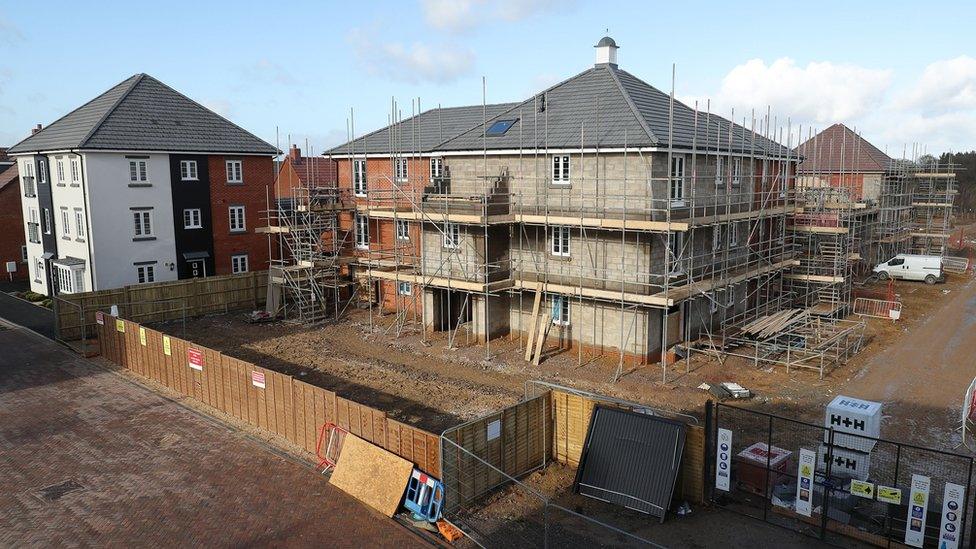Housing White Paper: Radical or feeble?
- Published

Over the last three decades, governments of various stripes have promised radical change to solve England's housing crisis and today's White Paper, external is no exception.
The problem is that so many of the initiatives and ideas sold to the country as ground-breaking prove to be business as usual.
So the Communities Secretary Sajid Javid went out of his way to sound no-nonsense and tough today. He accused some English councils of "fudging" the numbers on housing need in their area and warned them that he was not going to allow that to happen anymore.
But the response to the government's proposals has been decidedly mixed.
Labour's shadow housing minister John Healey described them as "feeble beyond belief".
"Re-treading old ground" was how the National Association of Commercial Finance Brokers described the White Paper. "Kicking the can down the road," one big investment fund said.
The chief executive of the housebuilder Inland Homes, Stephen Wicks, bemoaned the failure to relax rules on green belt development.
"Brownfield in itself can't possibly sustain the long-term housing requirements of the UK," he said. "It can go an awful long way but there needs to be a relaxation of some green belt to enable us to deliver the numbers that we are required to do."
The White Paper does include measures to encourage developers, housing associations and councils to build more affordable homes more quickly, both to rent and to buy.
'Broken' market
But this government seems to speak with two voices on housing: the communities department wants to shift the balance of power firmly towards new development in places people want to live, but Number 10 and some influential Tory backbenchers are sympathetic to the passionate concerns of those who wish to protect the countryside and particularly the green belt.
The real question that lies behind all the rhetoric and policy bullet-points is whether the balance of power between development and local opposition has fundamentally changed.
Ministers now accept England needs 250,000 new homes every year, they have described the housing market as "broken" and they agree that radical change is the only way to mend it.
But many have yet to be convinced that this White Paper amounts to a "realistic plan" to achieve that.
- Published7 February 2017
